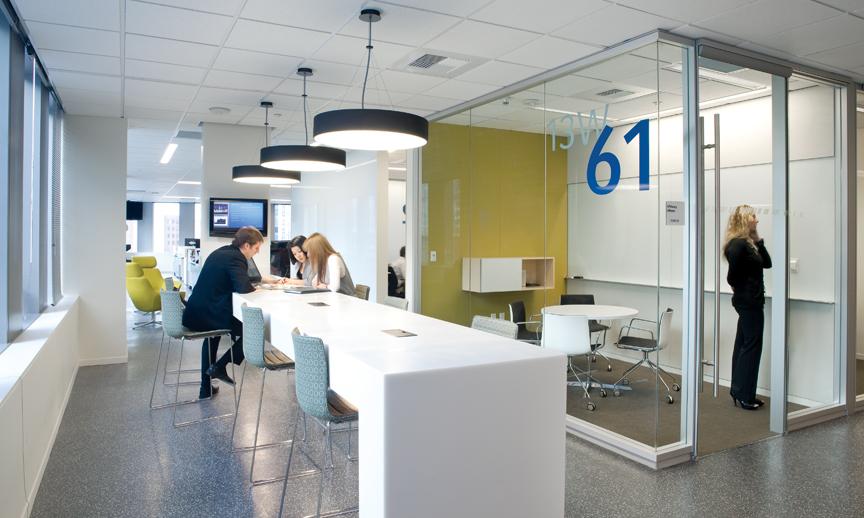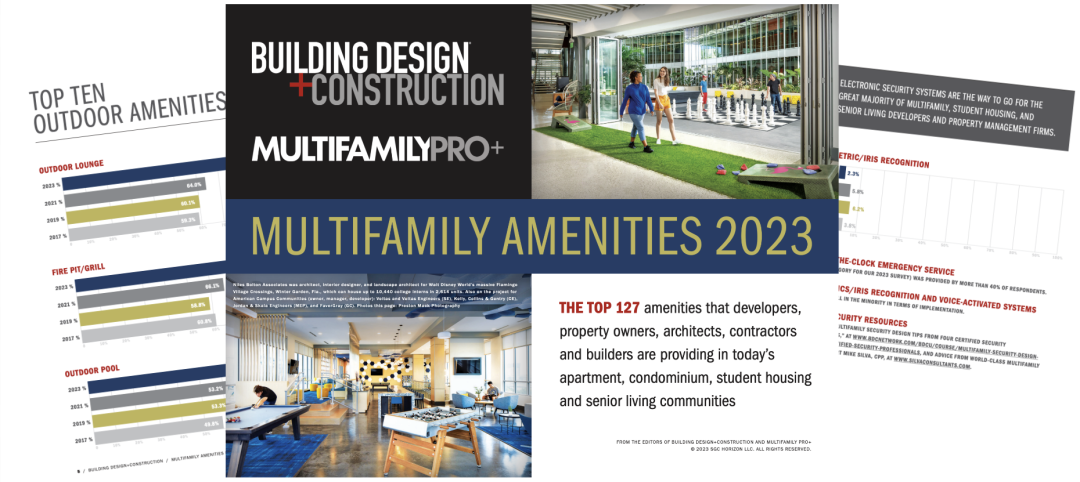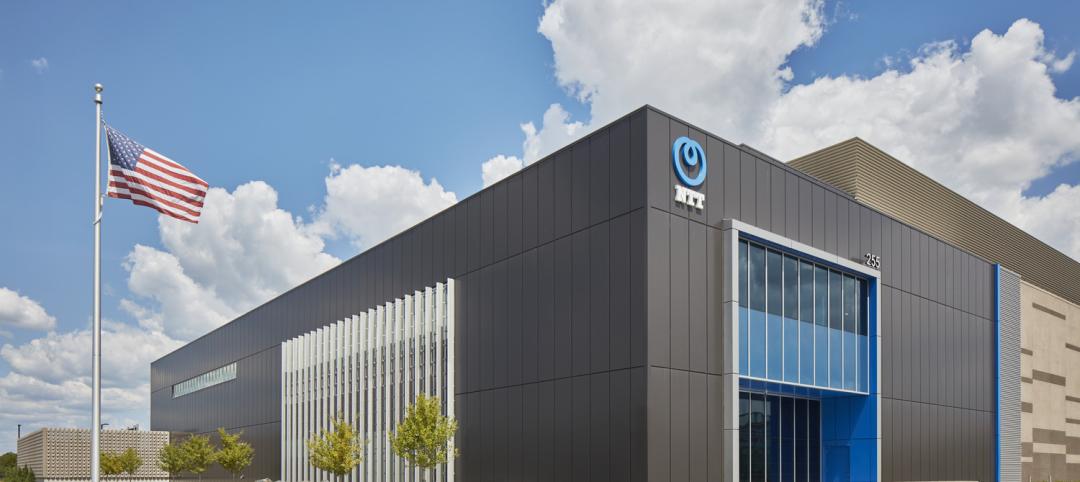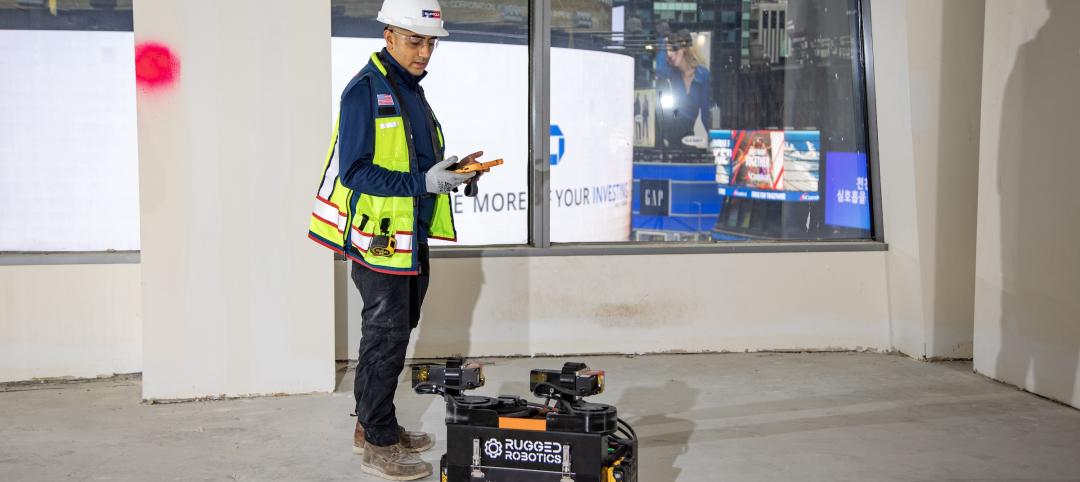Companies throughout America are investing in leading-edge technology in order to boost worker productivity, according to a Workplace of the Future survey.
Key findings of the survey include ninety percent of companies plan to increase investment in technology; cloud computing is a strategy 46% of companies are currently employing; the majority of companies, 54%, are using social media networks to engage employees; and top knowledge recruitment factors include offering flexible workplace options (41%) and leading-edge technology (39%).
“Revolutionary emerging technologies are transforming corporate real estate and changing the game for corporate occupiers,” said Peter Miscovich, managing director, corporate solutions, Jones Lang LaSalle, Chicago. “Emerging technologies are enabling new levels of workplace optimization and utilization as well as boosting productivity to levels never seen before in global organizations, leading knowledge workers into new frontiers of high performance collaboration and innovation.”
The survey was administered to approximately 30 leading U.S. companies and design firms by Teknion, a Toronto-based office furniture designer and manufacturer, revealed that nearly 90% plan to increase their investment in productivity-enabling technologies such as voice-activation and sophisticated video conferencing by 2015. The survey also found that by 2015, the standard of square feet allocated per employee is expected to drop from 200 to estimates ranging from 50 to 100 square feet per person dependent upon the industry sector. Workplace utilization factors will increase to 85% versus the 35 to 50% levels of today.
To increase space utilization, companies are employing several strategies including:
- More open, collaborative workspaces with less individual offices (77%).
- Densification of individual workspaces within the corporate office (62%).
- Reduce square footage footprint through disposition (54%).
- More employees working remotely from home sites, satellite sites, or client sites (46%).
- Mobile working programs that include desk-sharing and co-working spaces (31%). BD+C
Related Stories
Lighting | Mar 4, 2024
Illuminating your path to energy efficiency
Design Collaborative's Kelsey Rowe, PE, CLD, shares some tools, resources, and next steps to guide you through the process of lighting design.
MFPRO+ News | Mar 1, 2024
Housing affordability, speed of construction are top of mind for multifamily architecture and construction firms
The 2023 Multifamily Giants get creative to solve the affordability crisis, while helping their developer clients build faster and more economically.
Multifamily Housing | Feb 29, 2024
Manny Gonzalez, FAIA, inducted into Best in American Living Awards Hall of Fame
Manny Gonzalez, FAIA, has been inducted into the BALA Hall of Fame.
K-12 Schools | Feb 29, 2024
Average age of U.S. school buildings is just under 50 years
The average age of a main instructional school building in the United States is 49 years, according to a survey by the National Center for Education Statistics (NCES). About 38% of schools were built before 1970. Roughly half of the schools surveyed have undergone a major building renovation or addition.
MFPRO+ Research | Feb 28, 2024
New download: BD+C's 2023 Multifamily Amenities report
New research from Building Design+Construction and Multifamily Pro+ highlights the 127 top amenities that developers, property owners, architects, contractors, and builders are providing in today’s apartment, condominium, student housing, and senior living communities.
AEC Tech | Feb 28, 2024
How to harness LIDAR and BIM technology for precise building data, equipment needs
By following the Scan to Point Cloud + Point Cloud to BIM process, organizations can leverage the power of LIDAR and BIM technology at the same time. This optimizes the documentation of existing building conditions, functions, and equipment needs as a current condition and as a starting point for future physical plant expansion projects.
Data Centers | Feb 28, 2024
What’s next for data center design in 2024
Nuclear power, direct-to-chip liquid cooling, and data centers as learning destinations are among the emerging design trends in the data center sector, according to Scott Hays, Sector Leader, Sustainable Design, with HED.
Windows and Doors | Feb 28, 2024
DOE launches $2 million prize to advance cost-effective, energy-efficient commercial windows
The U.S. Department of Energy launched the American-Made Building Envelope Innovation Prize—Secondary Glazing Systems. The program will offer up to $2 million to encourage production of high-performance, cost-effective commercial windows.
AEC Innovators | Feb 28, 2024
How Suffolk Construction identifies ConTech and PropTech startups for investment, adoption
Contractor giant Suffolk Construction has invested in 27 ConTech and PropTech companies since 2019 through its Suffolk Technologies venture capital firm. Parker Mundt, Suffolk Technologies’ Vice President–Platforms, recently spoke with Building Design+Construction about his company’s investment strategy.
Performing Arts Centers | Feb 27, 2024
Frank Gehry-designed expansion of the Colburn School performing arts center set to break ground
In April, the Colburn School, an institute for music and dance education and performance, will break ground on a 100,000-sf expansion designed by architect Frank Gehry. Located in downtown Los Angeles, the performing arts center will join the neighboring Walt Disney Concert Hall and The Grand by Gehry, forming the largest concentration of Gehry-designed buildings in the world.
















